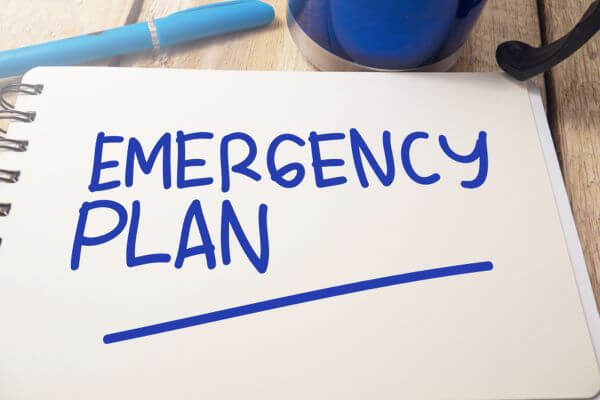Are you ready to embark on your next adventure? Whether you’re planning a relaxing beach getaway, an exciting city exploration, or an adrenaline-filled outdoor expedition, it’s important to prioritize your safety while traveling. That’s why we’ve put together the ultimate travel safety guide – a comprehensive resource packed with expert tips and advice to help you stay secure on all your adventures.
In this guide, we’ll cover everything from theft prevention strategies to personal safety tips and transportation security measures. We’ll also delve into emergency preparedness and ways to minimize risks while making informed decisions during your travels. Our goal is to equip you with the knowledge and tools necessary to navigate any destination with confidence, ensuring that your trip is not only memorable but also safe and secure. So let’s dive in and discover how you can protect yourself while exploring the world!
Theft Prevention: Keeping Your Belongings Safe
Keep your belongings secure and out of reach with these theft-prevention tips. When traveling, it’s important to be proactive in protecting your valuables. One of the best ways to do this is using a combination lock or a TSA-approved lock on your luggage. This will help deter thieves and provide an extra layer of security for your belongings.

Another important tip is to keep your valuables hidden and out of sight. Avoid displaying expensive jewelry or electronics in public places, as this can attract unwanted attention. Instead, consider investing in a money belt or a hidden pouch that can be worn under your clothing. These discreet storage options can help keep your cash, passport, and other important documents safe from prying eyes.
Lastly, always be aware of your surroundings and trust your instincts. If something feels off or if you notice someone behaving suspiciously, don’t hesitate to move away from the situation and find a safer spot. Additionally, it’s wise to avoid overcrowded areas where pickpockets thrive and stay vigilant when using public transportation.
By following these theft prevention tips, you can greatly reduce the risk of becoming a victim while traveling. Remember that safety should always be a top priority when exploring new destinations. With proper precautions in place, you can focus on enjoying your adventures without worrying about the safety of your belongings.
Personal Safety: Staying Alert and Aware
Pay attention to your surroundings and be aware of potential risks while traveling. Personal safety is of utmost importance when exploring new places. It is crucial to stay alert and aware at all times, as this will help you avoid dangerous situations and ensure a smooth and enjoyable trip.

One of the first things you can do to enhance personal safety is to research the destination before your trip. Familiarize yourself with the local customs, laws, and any potential dangers in the area. This knowledge will enable you to make informed decisions and minimize risks. Additionally, staying updated on current events in the region can help you stay vigilant and avoid areas that may be experiencing unrest or other security concerns.
Another essential aspect of personal safety is trusting your instincts. If something feels off or uncomfortable, it’s crucial to listen to your gut feeling. Whether walking alone at night in an unfamiliar neighborhood or interacting with strangers, always prioritize your intuition over politeness. Being assertive about your boundaries can prevent potentially dangerous situations from escalating.
Remember, personal safety should never be taken lightly while traveling. By paying attention to our surroundings, doing thorough research beforehand, and trusting our instincts, we can actively work towards ensuring a secure journey for ourselves and our fellow travelers. Together, let’s create an environment where everyone feels safe and protected during their adventures around the world.
Transportation Security: Navigating Public Transportation Safely
Navigating public transportation safely is a crucial aspect of ensuring a smooth and worry-free journey. As avid travelers, we understand the importance of feeling secure while using public transportation in unfamiliar cities. One key tip to remember is to always research the local transit system before arriving at your destination. Familiarize yourself with the routes, schedules, and any potential safety concerns. This way, you can confidently hop on a bus or train without feeling lost or vulnerable.

When using public transportation, it’s essential to stay alert and aware of your surroundings. Keep an eye on your belongings and be cautious of pickpockets or other potential threats. Avoid displaying valuable items openly, and consider using a money belt or hidden pouch to keep your cash and passport safe. Additionally, trust your instincts if something feels off or uncomfortable during your commute. It’s better to be cautious than to ignore warning signs.
Another important aspect of transportation security is knowing how to handle emergencies or unexpected situations. Make sure you have emergency contact numbers saved on your phone for both local authorities and the embassy or consulate in case of an emergency. Pay attention to the location of emergency exits on buses or trains and familiarize yourself with evacuation procedures if applicable. By being prepared for any unforeseen circumstances, you can navigate public transportation with confidence and peace of mind.
Remember, when traveling through unfamiliar territory, it’s natural to desire a sense of belonging even among strangers sharing the same mode of transport as you are. Engage with fellow passengers when appropriate by striking up conversations about their experiences in the city or seeking recommendations for places to visit. Not only does this help create connections, but also provides an opportunity for locals to offer advice on staying safe while navigating their city’s public transportation system.
Navigating public transportation safely requires thorough research, vigilance during travel, preparation for emergencies, and fostering connections with fellow passengers whenever possible. Following these tips, you can enjoy a worry-free journey and feel secure while exploring new destinations. So, hop on that train or bus with confidence, knowing that you are well-prepared for any situation that may arise.
Emergency Preparedness: Being Ready for the Unexpected
Be prepared for any unforeseen circumstances by having emergency contact numbers saved on your phone and familiarizing yourself with evacuation procedures. It’s essential to have access to important phone numbers, such as local authorities, the nearest hospital, and your country’s embassy or consulate.

In an emergency, you can quickly reach out for help or assistance. Additionally, take some time to research and understand the evacuation procedures of your destination. Familiarize yourself with the nearest exits in your accommodation and public spaces like airports or train stations.
To ensure your safety during unexpected events while traveling, here are five crucial items to include in your emergency preparedness plan:
- First Aid Kit: Pack a well-stocked kit that includes bandages, antiseptic wipes, pain relievers, and necessary prescription medications.
- Emergency Cash: Keep a small amount of cash in different denominations hidden in a secure location. This backup money can be invaluable if you lose your wallet or encounter situations where cards are not accepted.
- Travel Insurance: Purchase travel insurance that covers medical emergencies and trip interruptions. Having comprehensive coverage provides peace of mind knowing that you’ll receive financial support if needed.
- Copies of Important Documents: Make copies of your passport, identification cards, travel itinerary, and other important documents. Store them separately from the originals so that they’re easily accessible even if you lose the originals.
- Local Emergency Services Information: Research local emergency services, such as police stations and hospitals, at your destination before arriving. Knowing their locations can save precious time during an urgent situation.
By being proactive about emergency preparedness while traveling, you can minimize risks and feel more confident exploring new destinations. Remember that unforeseen circumstances can happen anywhere at any time; therefore, it is crucial to stay informed and ready for the unexpected.
Minimizing Risks: Making Informed Decisions While Traveling
When traveling, it’s important to make informed decisions in order to minimize risks and ensure a smooth journey. One way to do this is by conducting thorough research about your destination before you go. Look into the local customs, laws, and cultural norms so that you can respect and adhere to them during your stay.

This will not only help you avoid any unnecessary conflicts or misunderstandings but also show the locals that you are making an effort to understand and appreciate their way of life.
Another important aspect of making informed decisions while traveling is staying updated on current events and potential risks in the area you plan to visit. Check travel advisories issued by your government or reputable sources for any safety concerns or political instability in the region. By being aware of these factors, you can assess whether it’s safe to proceed with your plans or if it would be wiser to choose an alternative destination.
Lastly, consider using reliable transportation and reputable tour operators when exploring unfamiliar places. Researching reviews and feedback from other travelers can give you valuable insights into the safety standards and reliability of different providers. It’s also essential to trust your instincts when making decisions on the spot – if something feels off or unsafe, don’t hesitate to change your plans or seek assistance from local authorities.
By making informed decisions while traveling, we can significantly reduce the risks associated with our adventures. Being knowledgeable about our destination, staying updated on current events, and choosing reliable transportation options are all key steps toward ensuring a secure journey. So let’s embrace our desire for belonging by arming ourselves with information and making wise choices that prioritize our safety while immersing ourselves in new cultures and experiences.
Journey With Caution, Explore With Joy!
Staying safe while traveling is of utmost importance. By following the tips and guidelines outlined in this ultimate travel safety guide, you can ensure that your adventures are secure and enjoyable. Theft prevention techniques such as keeping your belongings safe and being aware of your surroundings will go a long way in safeguarding your valuables.
Additionally, maintaining personal safety by staying alert and aware is crucial. Pay attention to your instincts and trust your gut feelings when it comes to unfamiliar situations or people. Remember always to prioritize your well-being above everything else.
When it comes to transportation security, be cautious while navigating public transportation systems. Keep an eye on your belongings and avoid displaying signs of wealth or drawing unnecessary attention to yourself. Being prepared for emergencies by carrying important documents, having emergency contacts readily available, and knowing basic first aid skills can make a significant difference in unforeseen circumstances.
Lastly, minimizing risks is essential when making informed decisions while traveling. Research the local customs and laws of the destination you’re visiting beforehand so that you can respect their culture while avoiding any legal troubles. Trustworthy sources such as official travel advisories can provide valuable information regarding safety concerns in specific areas.
By incorporating these practices into your travel routine, you can have peace of mind knowing that you’ve taken the necessary precautions to stay secure on your adventures. Traveling should be an exciting experience filled with discoveries, and by prioritizing safety, you can fully enjoy all the world has to offer without compromising on personal well-being.






